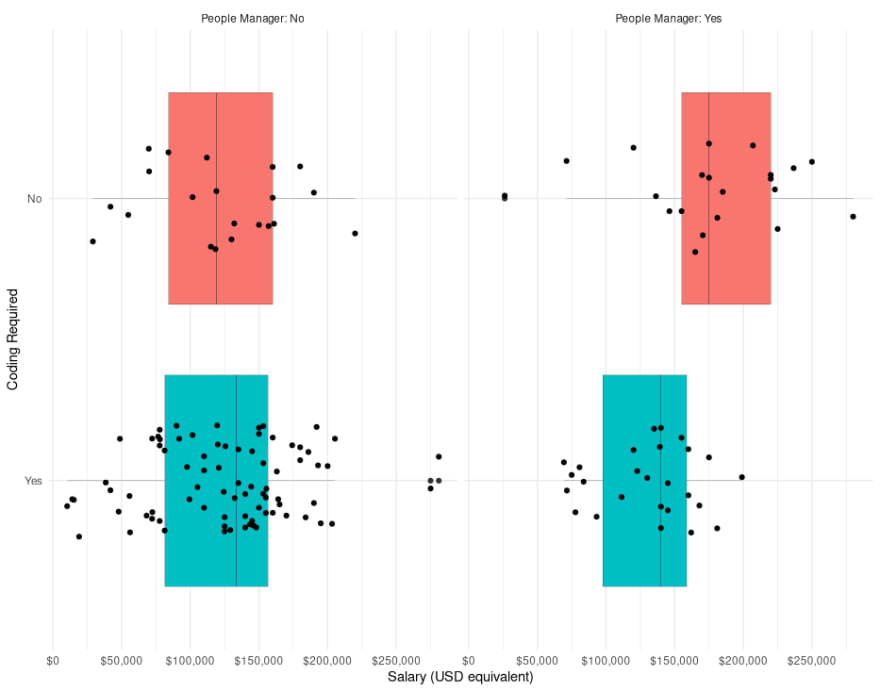Knowing what you’re there for
In addition to career progression, the nature of the job is relevant too. There were two questions asked that uncovered interesting findings regarding the expectations of the company and/or the employee. These were “Does your job require coding?” and “Do you manage others (i.e. hiring/firing power)?”.
Here’s a look at how salary varies across these two dimensions:
Let’s step back and make some sense of this. We’ve got 4 scatter plots, one for each cell of the 2×2 grid for “Coding” vs “Manager”. What are some of the basic conclusions we can pull from this data?
- People who code are typically paid more than those who don’t
- Likewise, managers are paid more
- Interestingly, those who do manage but don’t code are typically paid more than those who do both
It seems that trying to be “all things to all people” is counterproductive.
For the quadrant where coding is required for a hiring/firing role, perhaps we’re looking at someone who works for a company that doesn’t know what they need, advertising a “kitchen-sink” role. Alternatively, perhaps we have a new hire who isn’t sure what they’re worth and agrees to a lower price despite being highly skilled.
Our hypothesis based on this data is that knowing your skill-set and where you can contribute the most value is an important part of being able to ask for (and receive) a higher salary.
TABLE OF CONTENTS
Pt. 1 | Pt. 2 | Pt. 3 | Pt. 4 | Pt. 5 | Pt. 6 | Pt. 7 | Pt. 8







Top comments (0)